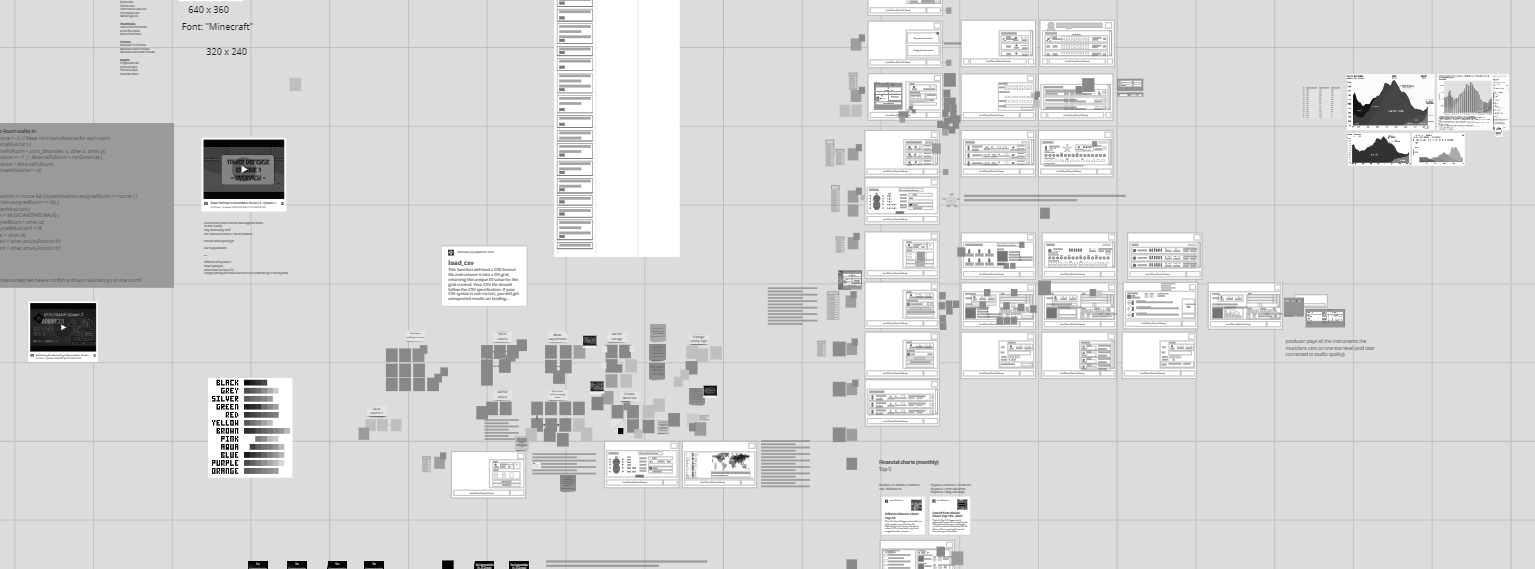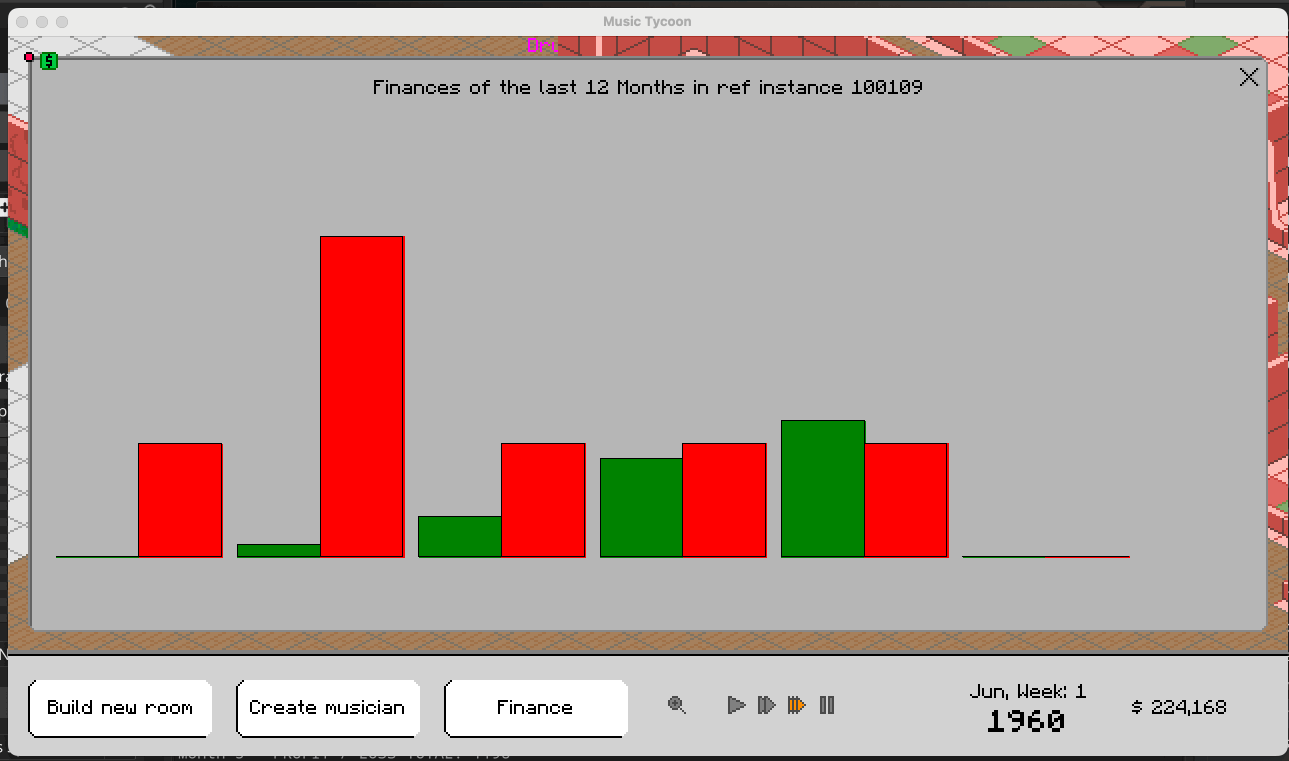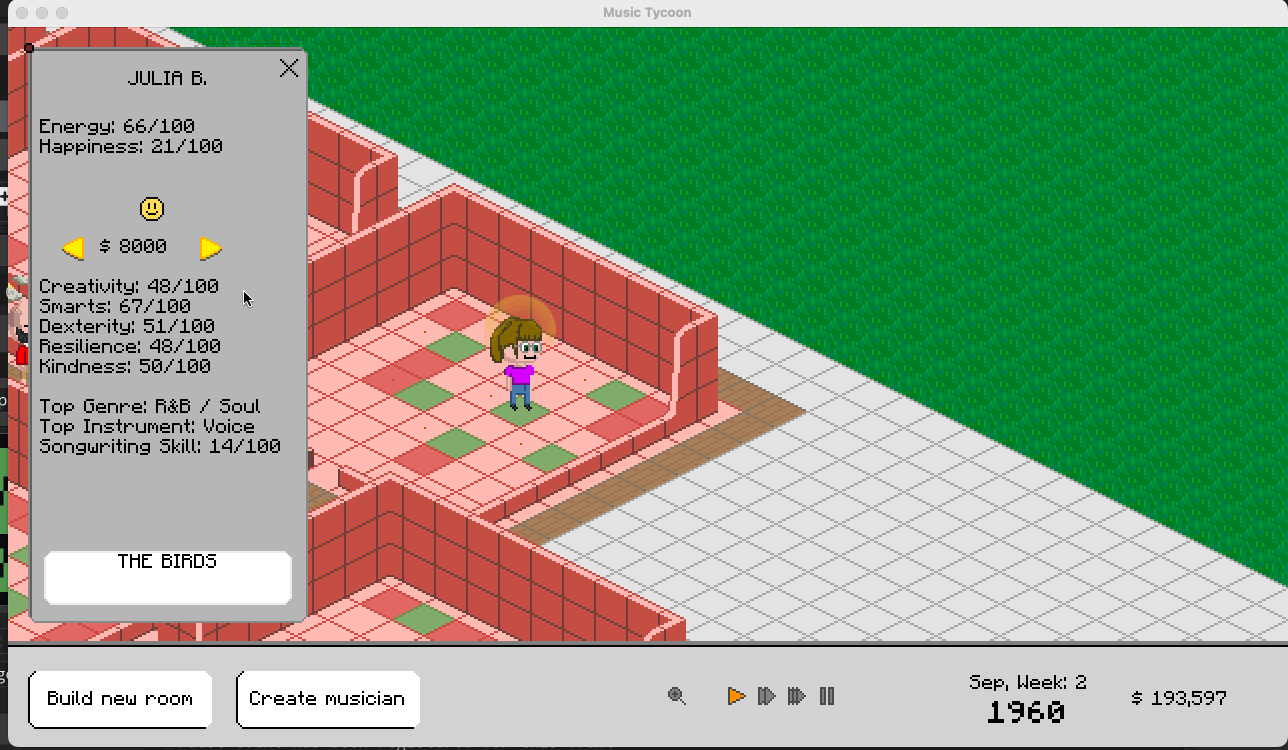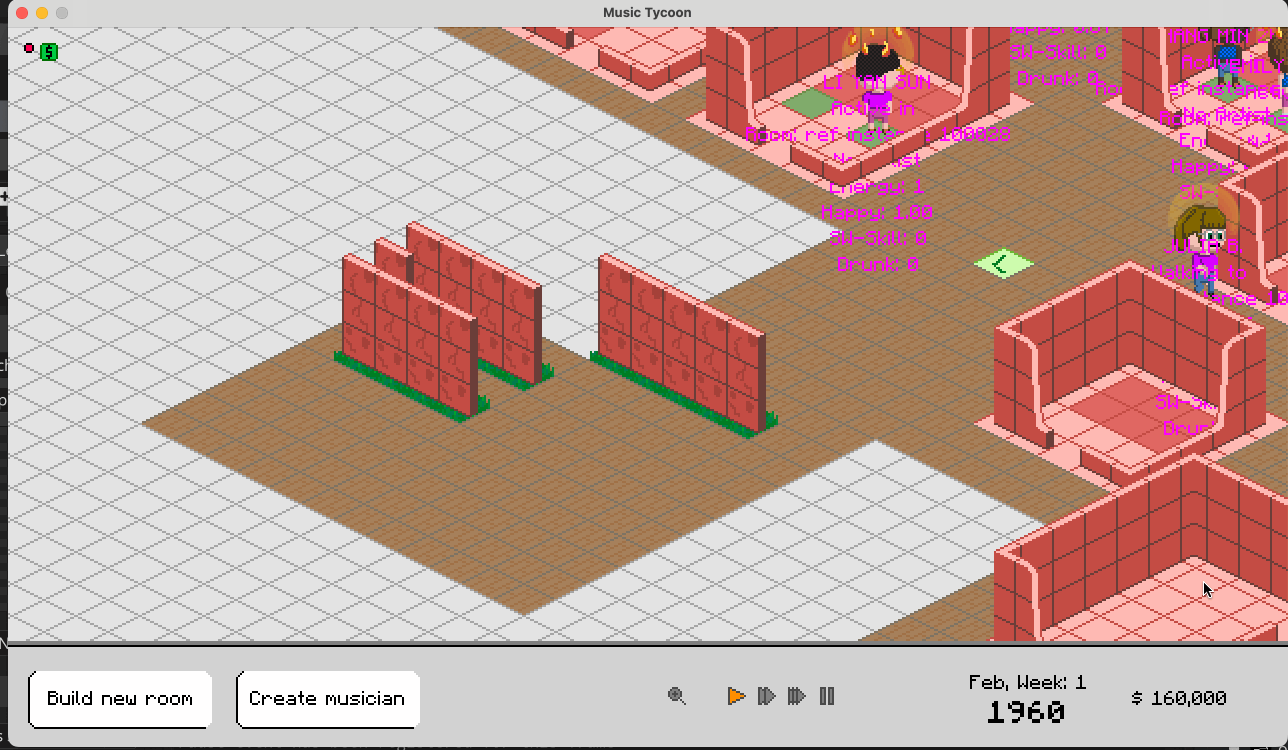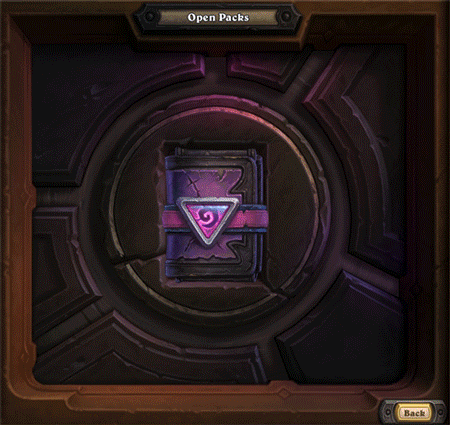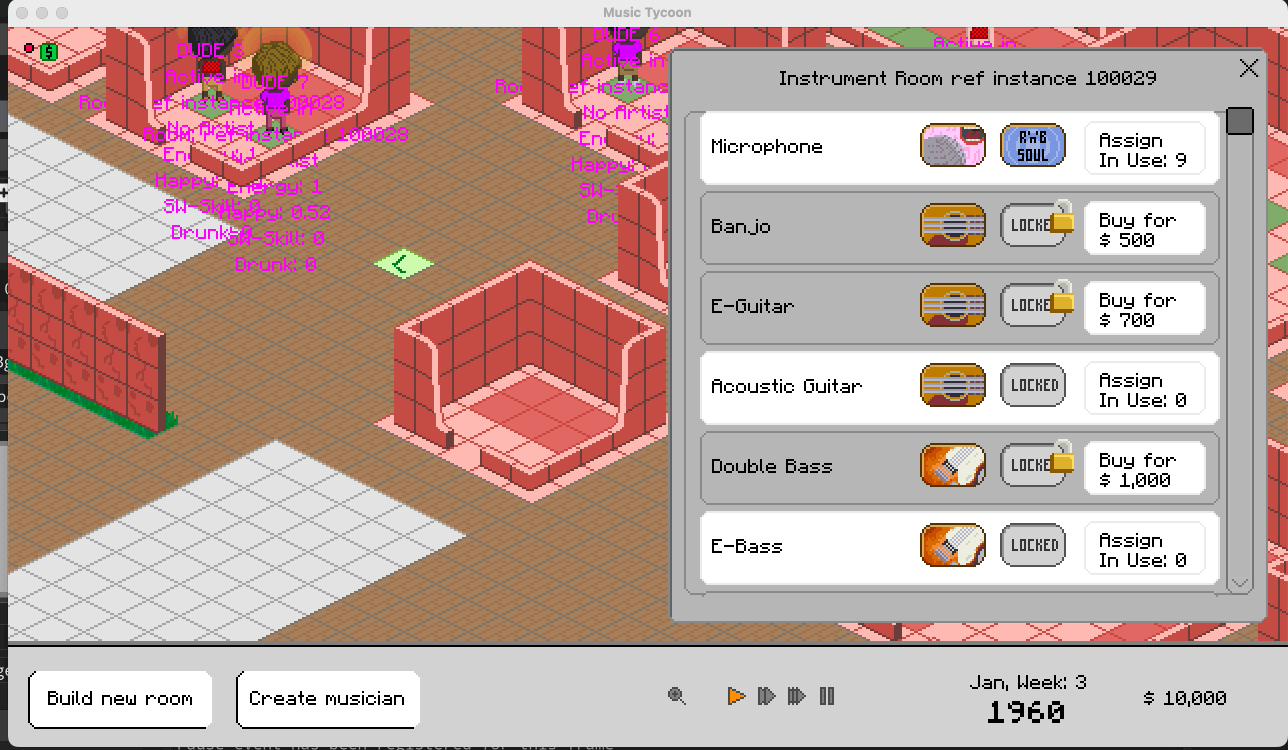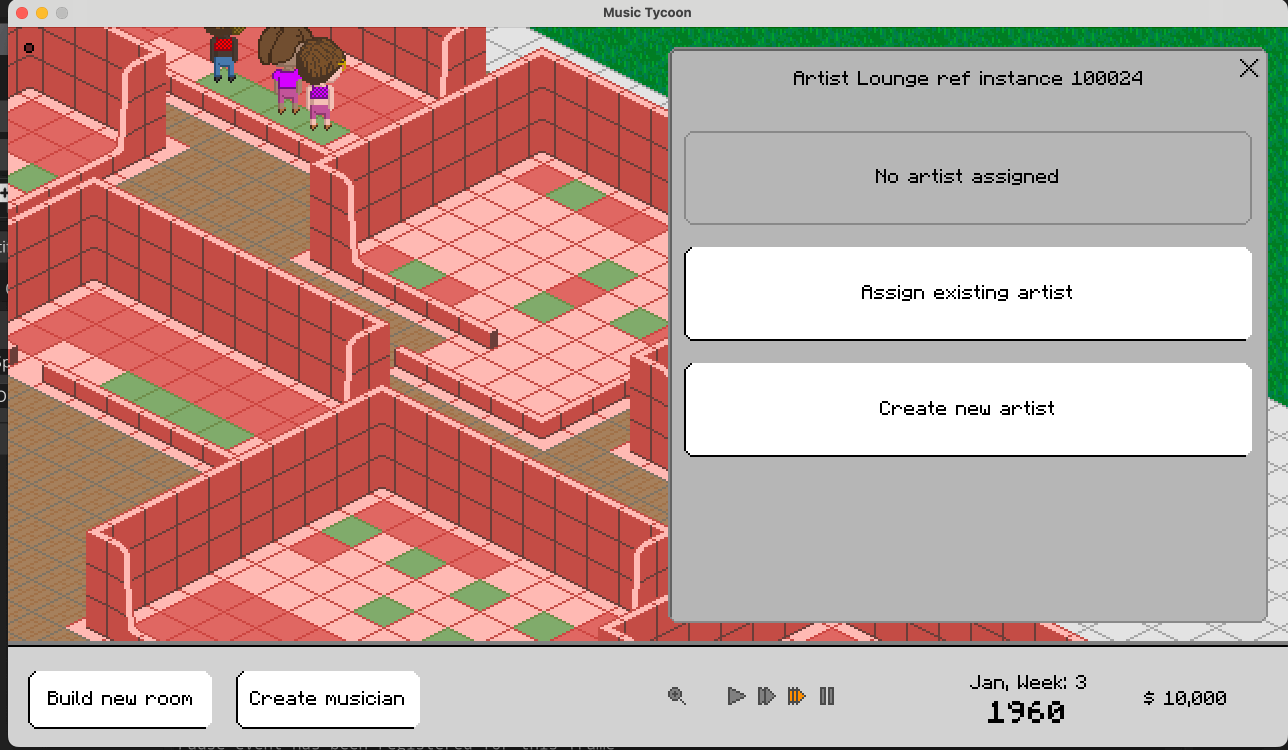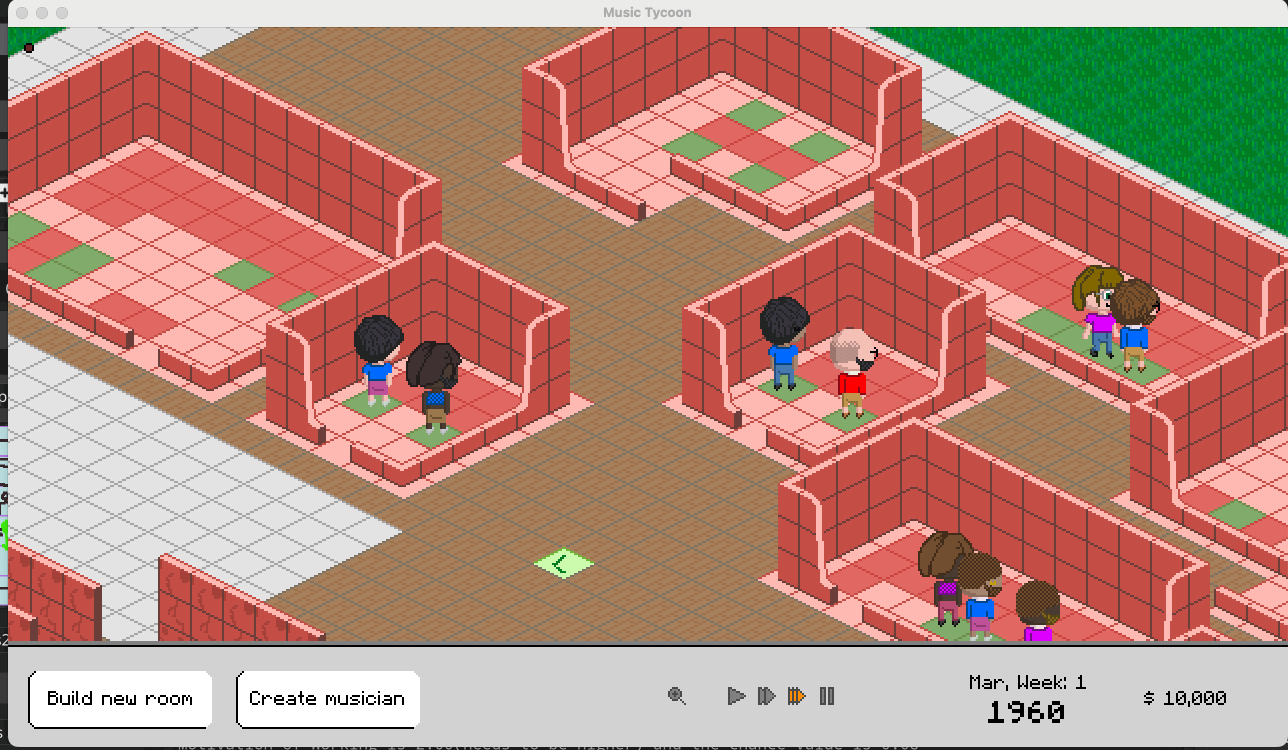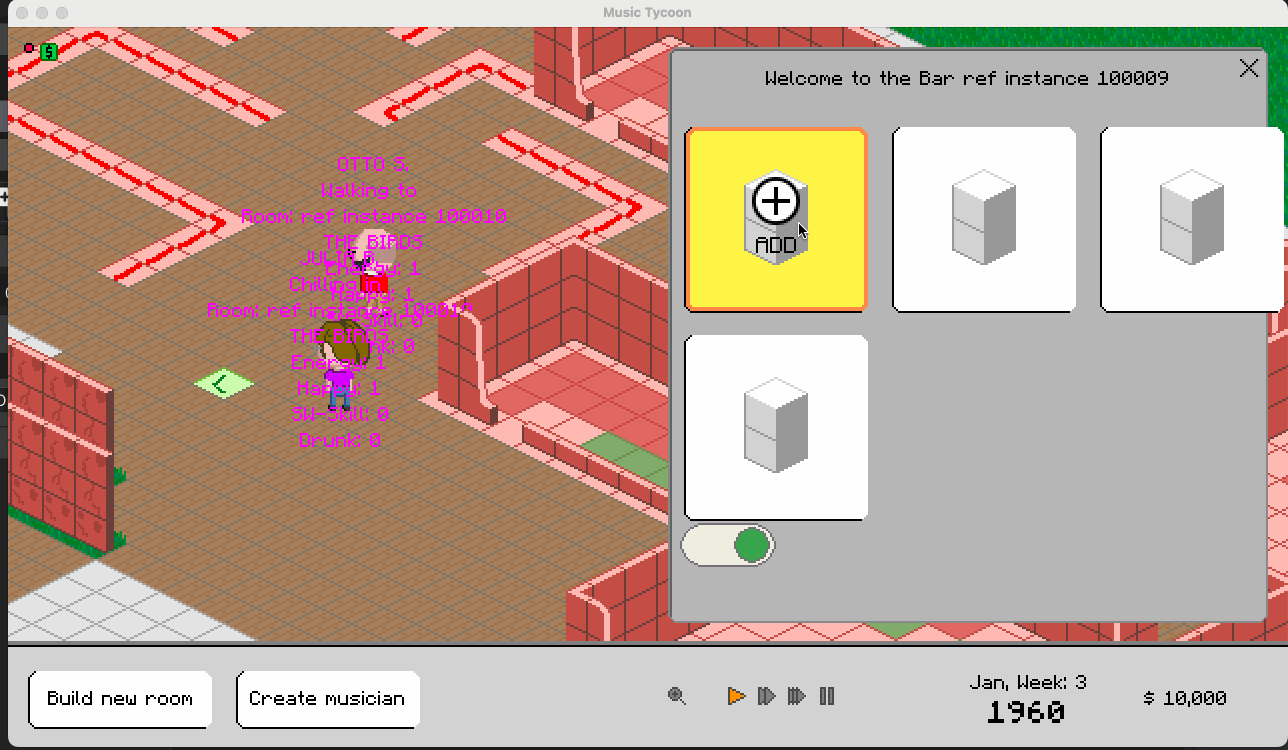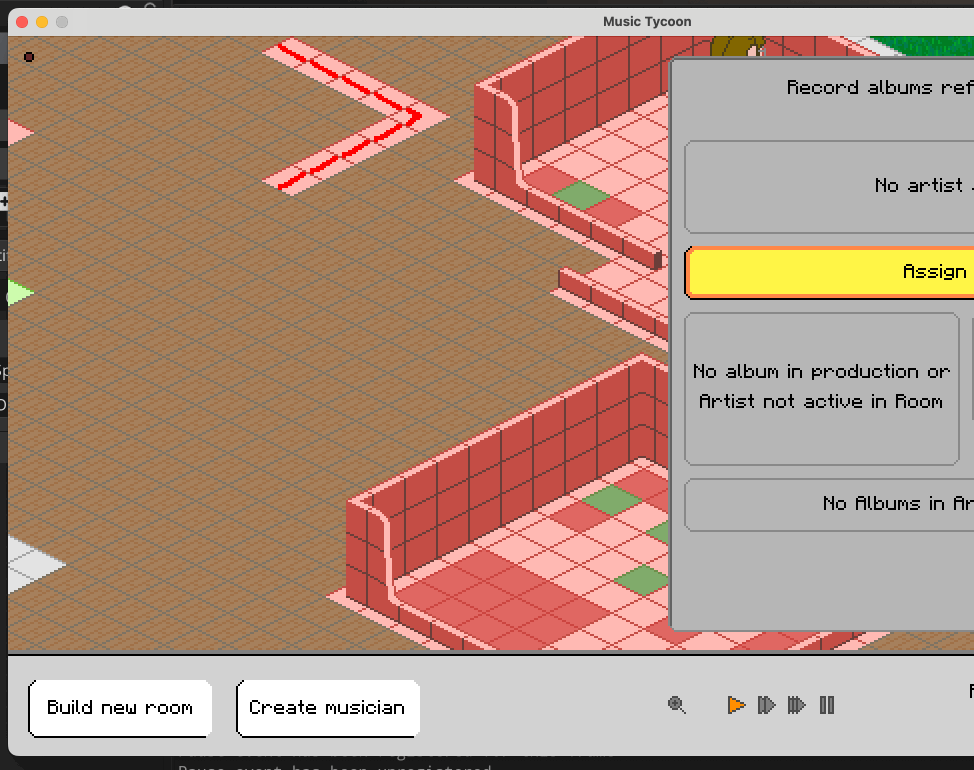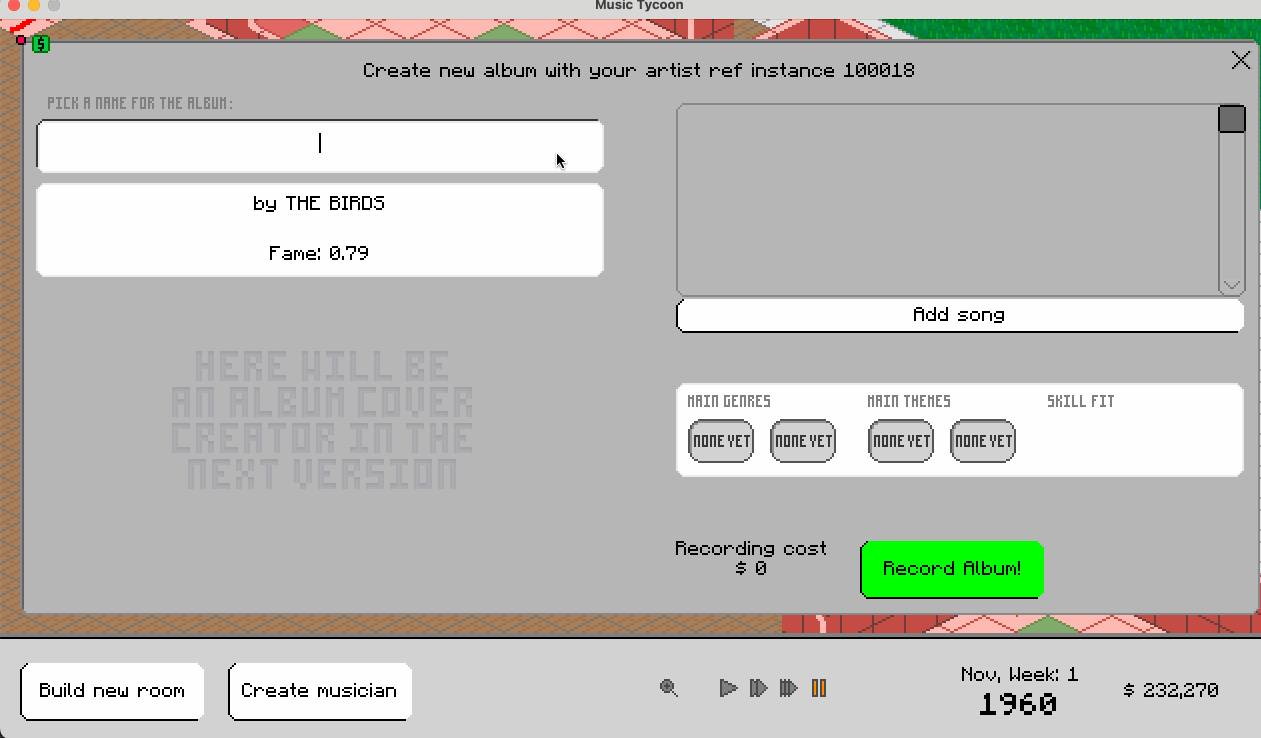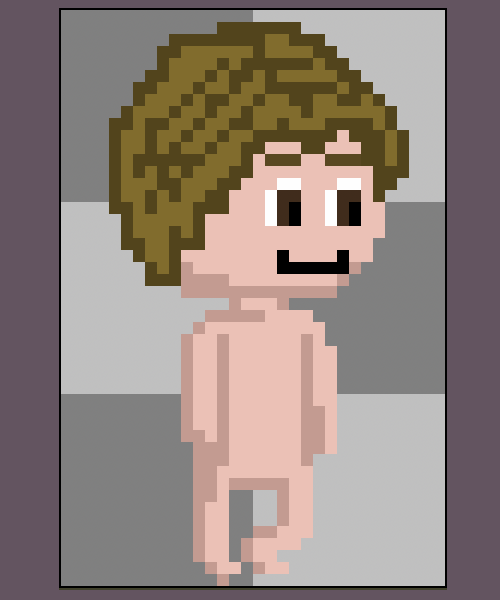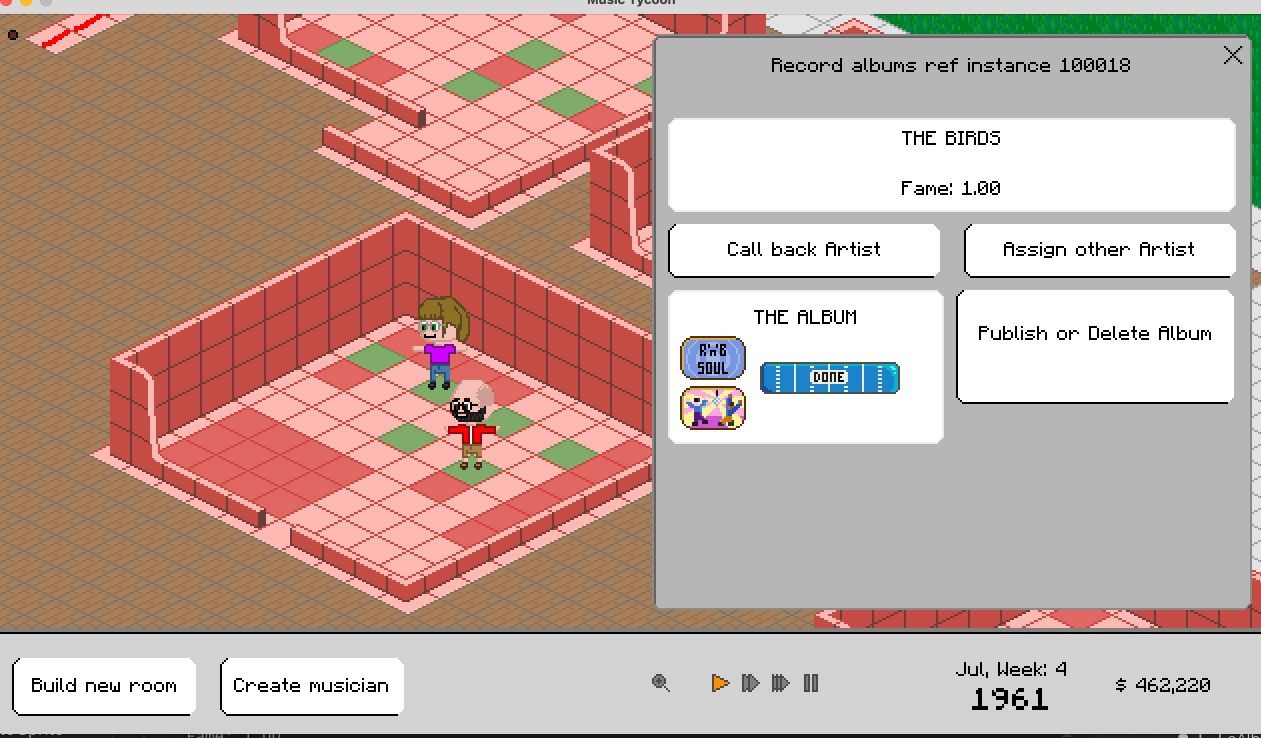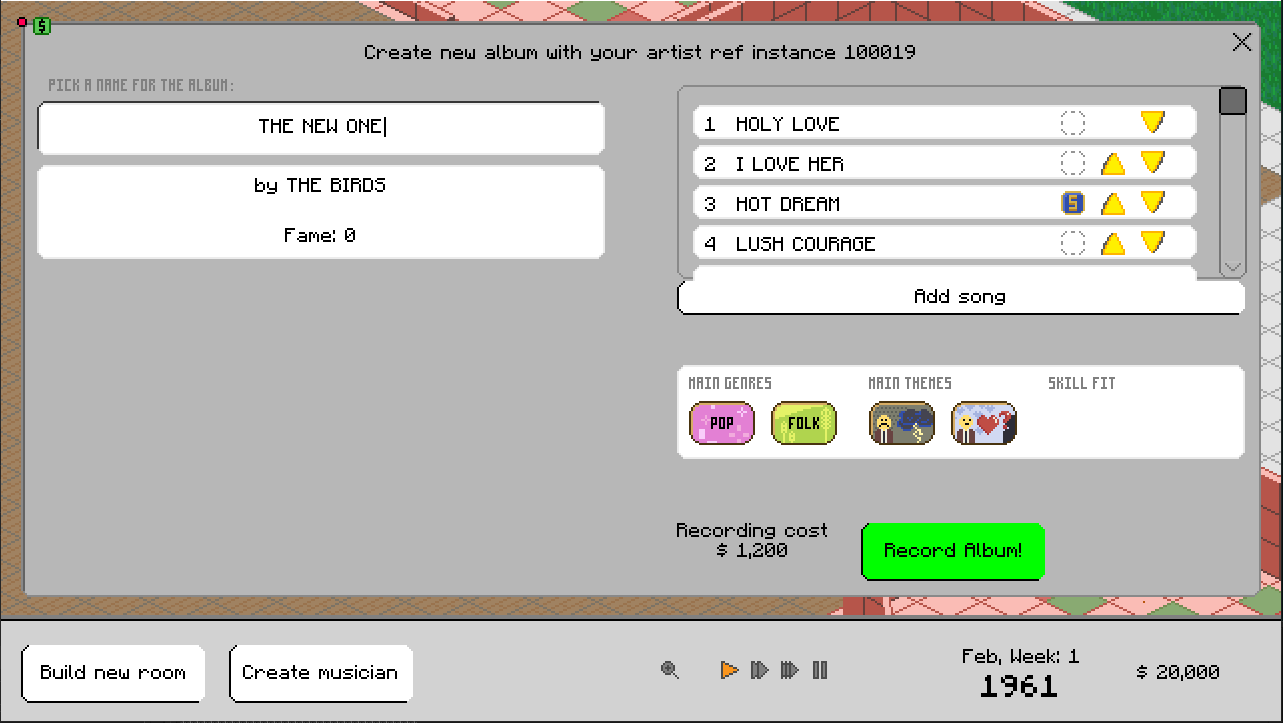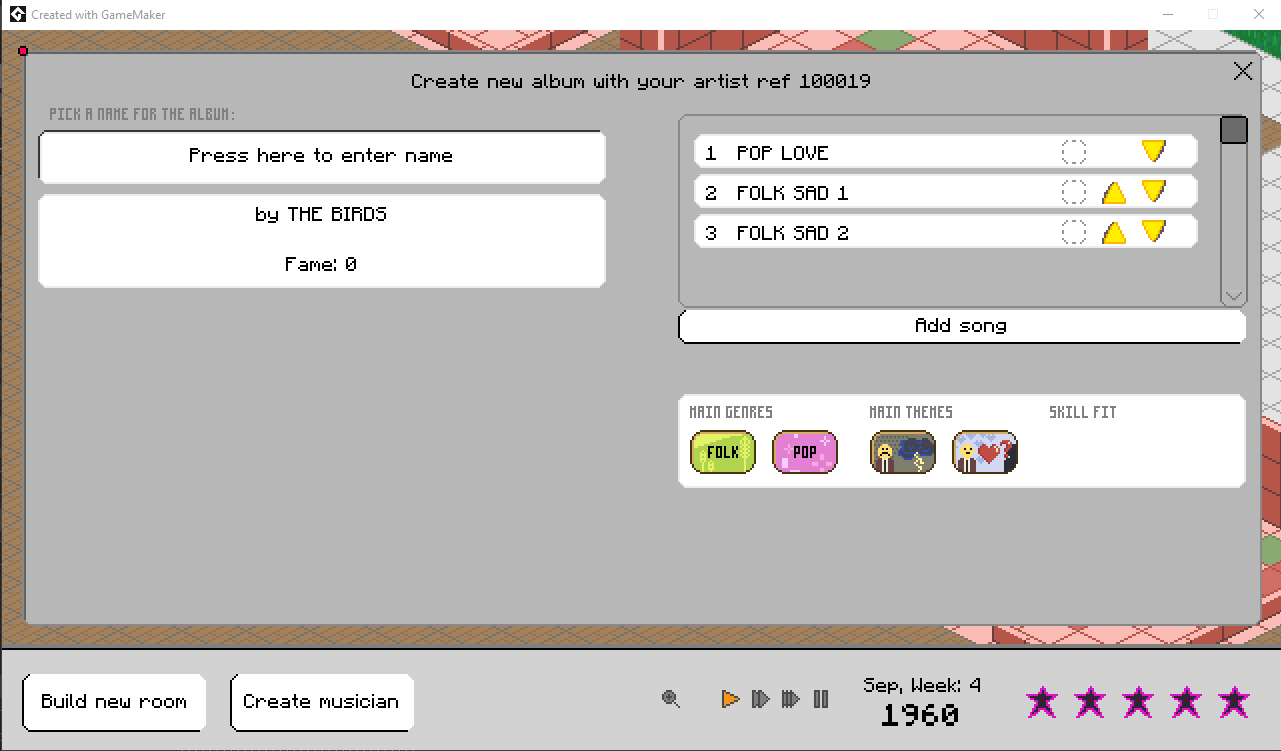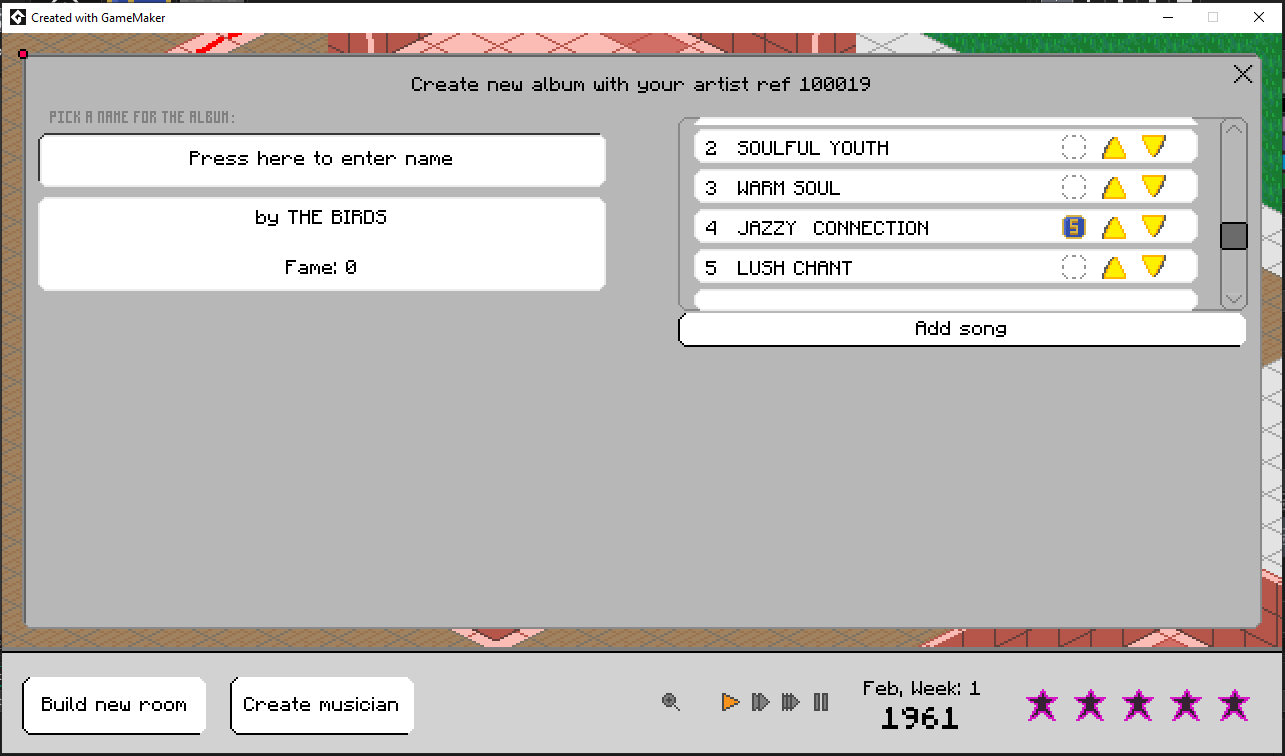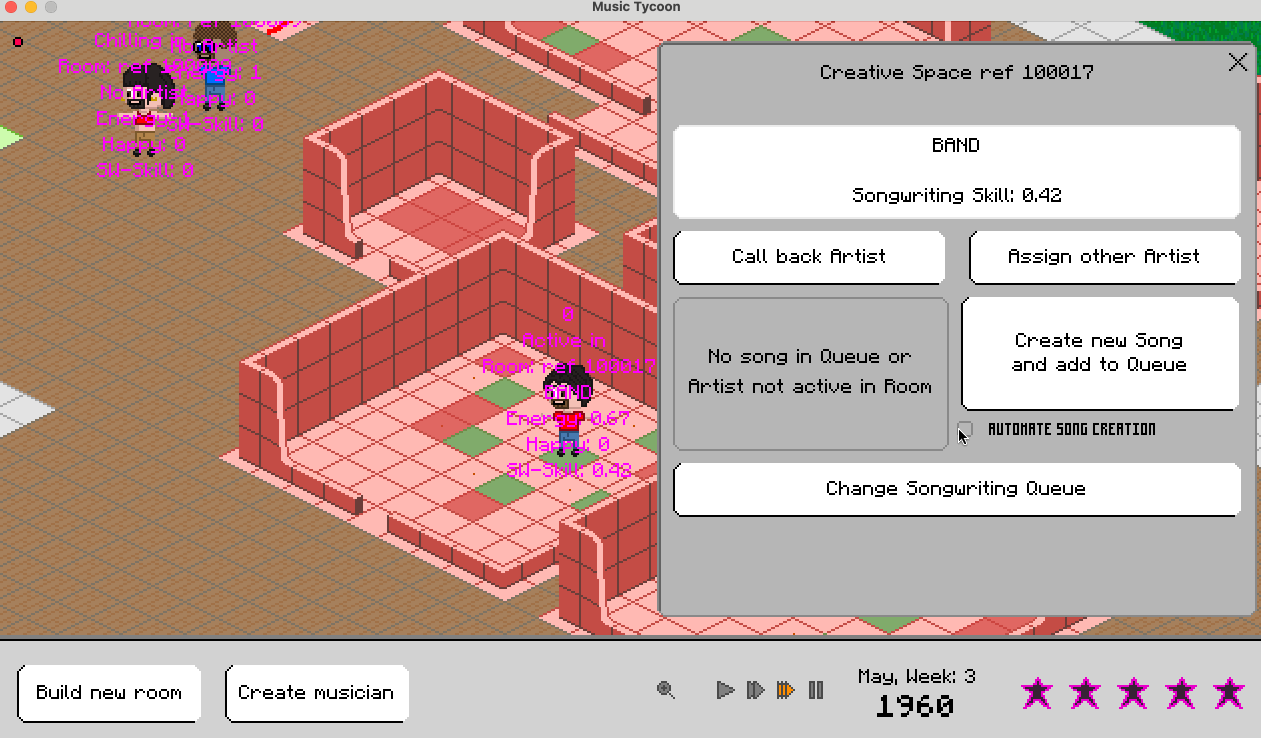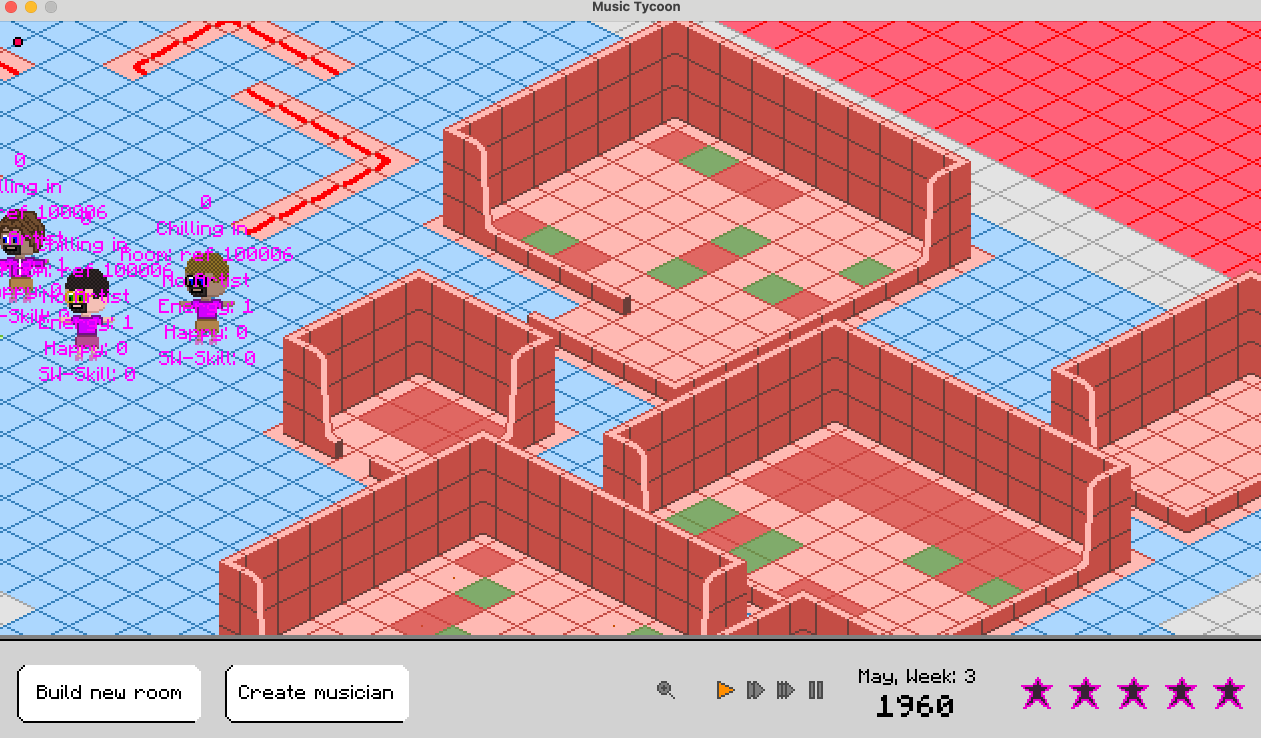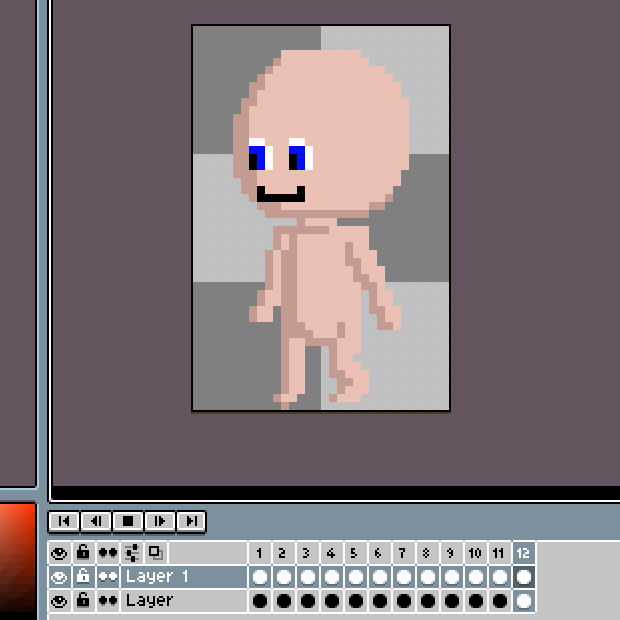The player is able to pick an artist to write the song, then give the song a name, choose a genre for it, a theme and the instruments that make up the song.
I still am in the “concept phase” of thinking about introducing a simplified DAW (digital audio workstation) for players to make their own music. I believe that just outputting generic songs is a bad idea, as they won’t match whatever the player has in mind, so I rather have them either do the leg work to make the songs sound like what they imagine, or the songs created have no sound at all… I probably should get some feedback from testers in the future, if that is the right way to go. But as said: I’m still in the concept phase on this point.
Alas, in this first phase I am happy when songs can be named and categorized, the quality of them (based on the songwriting skill and genre skill of the artist, as well as some randomization) calculated, each song be “written” over time by the artist in the room and it then being saved in a data structure, so it can be chosen to be recorded on an album (in the next room: the recording studio). That leads to a lot of potential for personalization already.
At a later point I also will make a “keep on writing songs automatically”-feature, so that the songwriting can be automized. I think some part of the player base will want to make songs and albums “by hand”, naming and choosing every song individually. But other - more managerial, “big picture” - types of players, probably don’t care about the song names that much and will want them just to be created as efficiently as possible, so that they can create more albums and make more money (quicker). So the “automatic song making” will probably take some keywords based on the genres and themes and create songs like that. For the more hands-on player, who wants to create every song individually, I’m thinking of introducing a queue of songs - so that they don’t need to go back every time one song is finished.
PS: I also made my own font for really small text:

